#aro confederacy
Text
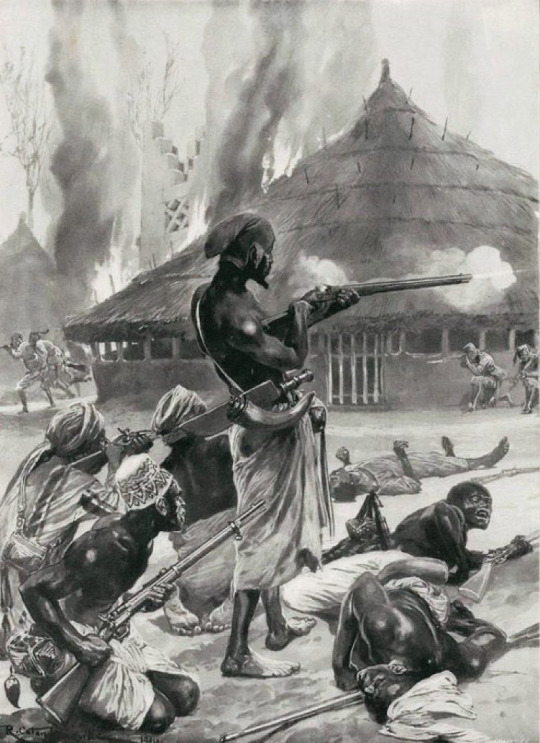
Aro Confederacy
The Aro Confederacy (1690–1902) was a political union orchestrated by the Aro people, Igbo subgroup, centered in Arochukwu in present-day southeastern Nigeria. The Aro Confederacy kingdom was founded after the beginning of the Aro-Ibibio Wars. Their influence and presence was all over Eastern Nigeria, lower Middle Belt, and parts of present-day Cameroon and Equatorial Guinea during the 18th and 19th centuries. The Arochukwu Kingdom was an economic, political, and an oracular center as it was home of the Ibini Ukpabi oracle, High Priests, the Aro King Eze Aro, and central council (Okpankpo). The Aro Confederacy was a powerful and influential political and economic alliance of various Igbo-speaking communities in southeastern Nigeria. It emerged during the 17th century and played a significant role in the region until the late 19th century.
The exact origins of the Aro Confederacy are not precisely documented, but it is believed to have been established around the mid-17th century. The Aro people, who were part of the Igbo ethnic group, inhabited the region around present-day Arochukwu in Abia State, Nigeria. They were skilled traders and missionaries who played a pivotal role in connecting various Igbo communities. This migration and their military power, and wars with neighboring kingdoms like supported by their alliances with several related neighboring Igbo and eastern Cross River militarized states (particularly Ohafia, Edda, Abam, Abiriba, Afikpo, Ekoi, Bahumono, Amasiri etc.), quickly established the Aro Confederacy as a regional economic power. The Aro Confederacy's strength came from its well-organized network of Aro agents who were dispersed across different communities in the region. These agents acted as intermediaries in trade, diplomacy, and religious matters. They facilitated commerce, resolved disputes, and spread the worship of the Aro deity known as the "Long Juju" oracle."The Opening Up of Nigeria, the Expedition Against the Aros by Richard Caton Woodville II" 1901
The "Long Juju" oracle was the spiritual centerpiece of the Aro Confederacy. It was housed in Arochukwu and considered a potent source of political authority and religious guidance. The Aro people used the oracle to enforce their influence and control over surrounding communities. It also served as a means to administer justice and settle disputes, often attracting pilgrims seeking solutions to their problems.
The Aro Confederacy gained significant economic power through trade and commerce Their economy was primarily based on agriculture, with the cultivation of crops like palm oil, yams, and cassava. They were also involved in trade with neighboring communities and European merchants. They controlled trade routes that passed through their territories, collecting tolls and taxes from traders. The Aro also engaged in the Trans-Atlantic slave trade by capturing and selling slaves to European traders.
Aro activities on the coast helped the growth of city-states in the Niger Delta, and these city states became important centres for the export of palm oil and slaves. Such city-states included Opobo, Bonny, Nembe, Calabar, as well as other slave trading city-states controlled by the Ijaw, Efik, and Igbo. The Aros formed a strong trading network, colonies, and incorporated hundreds of communities that formed into powerful kingdoms. The Ajalli, Arondizuogu, Ndikelionwu, and Igbene Kingdoms were some of the most powerful Aro states in the Confederacy after Arochukwu. Some were founded and named after commanders and chiefs like Izuogu Mgbokpo and Iheme who led Aro/Abam forces to conquer Ikpa Ora and founded Arondizuogu. Later Aro commanders such as Okoro Idozuka (also of Arondizuogu) expanded the state's borders through warfare at the start of the 19th century. Aro migrations also played a large role in the expansion of Ozizza, Afikpo, Amasiri, Izombe, and many other city-states. For example, Aro soldiers founded at least three villages in Ozizza. The Aro Confederacy's power, however, derived mostly from its economic and religious position. With European colonists on their way at the end of the 19th century, things changed.Burning of Arochukwu 1901
During the 1890s, the Royal Niger Company of Britain bore friction with the Aros because of their economic dominance. The Aro resisted British penetration in the hinterland because their economic and religious influence was being threatened. The Aro and their allies launched offensives against British allies in Igboland and Ibibioland. After failed negotiations, the British attempted to conquer the Aro Confederacy in 1899. By 1901, the tensions were especially intensified when British prepared for the Aro Expedition. The invasion of Obegu (in Igboland) was the last major Aro offensive before the start of the Anglo-Aro War. In November 1901, the British launched the Aro Expedition and after strong Aro resistance, Arochukwu was captured on December 28, 1901. By early 1902, the war was over, and the Aro Confederacy collapsed. Contrary to the belief that the Ibini Ukpabi was destroyed, the shrine still exists, and is intact in Arochukwu and serves mainly as a tourist site.

#african#afrakan#kemetic dreams#africans#afrakans#brown skin#brownskin#african culture#afrakan spirituality#arochukwu#anglo aro war#obegu#igboland#ibibioland#igbo#igbo culture#british#long juju#aro confederacy#confederacy#nigerian#cameroon
26 notes
·
View notes
Text
The Aro Confederacy and Bamana Empire share aspects of their history:
The Aro Confederacy and Bamana Empire are two products of the history of the slave trade and the rise of states that sought to exploit it. In doing so they yoked their economy to the long chain of misery and raids that it brought, and in doing so they left themselves exposed to when industrialism meant the trade was meaningless to both conquest and the dismantling of the Faustian concept that underpinned the states.
With the Aro, in particular, there arose a narrative of cannibalism pushed by largely indirect reports, as with many Caribbean Indigenous American peoples. Cannibalism was and is a popular allegation in old-model societies to put one's neighbors beyond the pale. It does not have any basis from the self-perception of the Aro, but worked neatly to justify the expansion of what became the Nigerian colony and to present the conquest as anything but a selfish absorption of an old trading partner where the trade in question was now subject to that Victorian conceit that the Empire had profited from slavery merely to abolish it.
#lightdancer comments on history#black history month#aro confederacy#african history#nigerian history#british empire
4 notes
·
View notes
Text

Africans, Europeans, Middle Easterners, Native Americans, Asians and so on, and this is just me talking about the slavery that went on during the only period in history in which you people seem to care about slavery.
Yes, Europeans had slaves, but they didn't run into the Congo with nets, they bought them from local African kingdoms, Dahomey, Kanem Bornu, Kingdom of Allada, Aro Confederacy, Ashanti Empire, Songhai Empire and the Mali Empire to name a few.
These African nations grew fat and opulent on money gained from "slaving," however they are never critiqued, never condemned by your side, but those, like the British, who put a stop to the slave trade in the west, are condemned and anyone who speaks out against this blatant racist bias, is condemned as a nazi or white supremacist, as you and the one you reblogged from have done.
No, instead people who believe as you do make movies glorifying the worst slavers in Africa, such as when Hollywood decided to make "the Woman King," a movie glorifying the Dahomey slavers.
Let's read what the Late King of Dahomey said when the British ended the slave trade, king Ghezo said; "The slave trade is the ruling principle of my people. It is the source and the glory of their wealth…the mother lulls the child to sleep with notes of triumph over an enemy reduced to slavery." Coincidentally he was played by John Boyega in the film, despite having been long dead by the time the film is meant to take place.
Oh, then we have the Indian Ocean slave trade which took Africans from east Africa, mainly the Christian kingdom of Ethiopia, and traded them to areas of India and Asia, then we have the Arab slave trade which took slaves from east Africa, North Africa, Europe, India and Asia, btw this was all happening at the same time as the Trans Atlantic, however you won't find slave descendants in these areas, why?
They castrated male slaves prior to selling them.
An even better fact is this, the Arab and Asian slave trade of Africans and other races is still going on today, it hasn't stopped, and today more than 30 million people are slaves globally, but that's a conservative estimate, it could be far higher.
In fact, let's use this very liberal estimate map from the global slavery index;

And would you look at that, you're so preoccupied with condemning an entire race for something we willingly ended hundreds of years ago, while ignoring the ongoing slavery around the world, oh, but you can't actually do anything about that so you'd prefer to virtue signal online rather than campaign to end slavery globally, after all one is easy and gives you immediate gratification by your online circlejerk while the other you may never see the end result of.
Personally I choose the latter, why?
Blessed are those who plant trees knowing that they shall never sit in the shade of their foliage.
103 notes
·
View notes
Text

22 Most Famous and Powerful kingdoms/Empires in the History of Afrika....Know who you Are
1) The Songhai Empire (1401-1600) - Niger 🇳🇪, Mali 🇲🇱, Mauritania 🇲🇷, Senegal 🇸🇳, Nigeria🇳🇬, Guinea 🇬🇳, The Gambia🇬🇲, Algeria (south) 🇩🇿, Burkina-Faso🇧🇫, and Ivory Coast 🇨🇮, Chad 🇹🇩
2) The Kingdom of Kemet and Cush over 11k history before invaders - Egypt 🇪🇬
3. The Great Igala/Attagara Kingdom (800BC - 1700 AD)- Nigeria 🇳🇬/Uganda/Kenya/South Sudan/Congo/Sierra Leone
4) The Aksumite( Axum) Empire(100-940 CE) - Ethiopia/Eritrea 🇪🇹/🇪🇷
5) The Mali Empire (1235 to 1670)- Mali 🇲🇱, Senegal 🇸🇳, Burkina Faso 🇧🇫, Niger 🇳🇪, Guinea 🇬🇳, The Gambia 🇬🇲, Guinea-Bissau 🇬🇼, Ghana 🇬🇭
6) The Great Benin Empire(40BC-1897AD) - Nigeria 🇳🇬
7) The Empire of Ghana( Wagadu 601 - 1240) - Mauritania 🇲🇷, Senegal🇸🇳
8) The Great Zimbabwe Empire (1220-1450 CE)- 🇿🇼
9) The Ethiopian Empire ( Abyssinia ) 1270 (beginning of Solomonid Dynasty) until 1974 - Ethiopia 🇪🇹
10) The Kingdom of Kush (1069 BCE and 350 CE) - Sudan/ South Sudan 🇸🇩/🇸🇸
11) The Kingdom of Kongo ( 1301 - 1665 ) - Angola 🇦🇴 DRC 🇨🇩 Congo 🇨🇬 and Gabon 🇬🇦
12) The Oyo Empire.(1300s-1835) - Nigeria 🇳🇬
13) The Carthage Empire (814 BC–146 BC)- Tunisia 🇹🇳
14) Kanem-Bornu Empire. (1396-1893)- Nigeria 🇳🇬
15) The Mutapa Empire (c. 1450-1629)- Zimbabwe/Mozambique 🇿🇼/🇲🇿
16) Ashanti Empire. (1701 to 1901)- Ghana 🇬🇭
17) The Aro Confederacy (1690–1902)- Nigeria 🇳🇬
18) The Jolof Empire. (1350 to 1549)- Senegal 🇸🇳
19) The Kingdom of Nri (1100 until 1911)- Nigeria 🇳🇬
20) The Luba Empire.(1585–1889) - DRC 🇨🇩
21) The Nok Civilization.(1500 BC — c. 500) AD- Nigeria 🇳🇬
22) The Zulu Empire (1816-1897)- South Africa 🇿🇦
26 notes
·
View notes
Text
Alright fellow pale people let's have a chat.
The reason Jake's behavior post NM is excusable is because HE is a Native POC and the stereotypes and problematic behaviors he exhibit are harmful TO HIM SPECIFICALLY as well as Native culture in general and so writing them off as the author's racist ramblings is natural. These things were written to slander Jacob and Native culture.
Jasper being a Confederate is not something we're allowed to excuse because the actions of the Confederacy and of Jasper himself are harmful to BLACK PEOPLE and not to him, his family, or any other white person. It's also written as not being a big deal.
I understand. You see a pattern, you want to know why one is wrong. I used to too! This is something I had to learn!
The great thing is: you can still like both characters. You can like Jasper! You just cannot forget, excuse, write off, or "fix" what he did. You also CANNOT speak over poc about how you feel about him.
Fix-it fic serves a purpose. You can solve the racism, the misogyny, the idiocy, and the problematic elements. But that's FIC. IN FANDOM where REAL ACTUAL FANS OF COLOR CAN SEE YOU Jasper does not get a pass. You can like him, you can make funny posts about him, but you don't get to be upset if a poc tells you they don't like him.
From one white person to another, it is OUR RESPONSIBILITY to listen to our POC counterparts on this matter and ALL matters surrounding racism.
#i understand your intentions#this is something i PERSONALLY HAD TO SELF CORRECT#and i still love jasper#i love EVERY FUCKIN CHARACTER IN THIS STUPID SERIES#except aro and caius#fuck those two#but its important that we dont hurt our fandom friends of color#with this or any other matter#thanks to my lovely wife ive been able to learn this#so im hoping that this will help other white people#so we dont have to bother the truly wonderful poc over this#they are constantly educating us and they shouldnt have to#lets get it together#racism tw#confederacy tw#jasper hale#jasper whitlock
324 notes
·
View notes
Text
bad representation in the pjo-verse: a masterpost
(disclaimers under the cut)
RACISM/OFFENSIVE STEREOTYPING
general issues: 1 // 2 // 3 // 4 // 5 // 6 // 7 // 8
SAMIRAH:
- arranged marriage: 1 // 2 // 3 // 4
- hijab: 1 // 2
- response to rick’s post: 1 // 2
- nickname “sam”: 1 // 2 // 3
HAZEL:
- general issues: 1 // 2 // 3 // 4 // 5 // 6
- physical appearance: 1 // 2 // 3 // 4 // 5 // 6 // 7 // 8 // 9
- fr*zel: 1 // 2
- white/lightwashing: 1
- (bonus: fancasts/faceclaims/art references)
PIPER:
- general issues: 1 // 2 // 3 // 4 // 5 // 6 // 7 // 8
- physical appearance: 1 // 2 // 3 // 4 // 5 // 6 // 7 // 8 // 9 // 10 // 11
- relationship with tristan: 1
- cornucopia: 1
- response to rick’s post: 1 // 2 // 3 // 4
- (bonus: resources masterpost)
SADIE:
- whitewashing: 1 // 2 // 3 // 4 // 5 // 6 // 7 // 8 // 9
LEO: 1 // 2 // 3 // 4 // 5
REYNA: 1 // 2 // 3
MALLORY: 1 // 2 // 3 // 4
PAOLO: 1
THOMAS JEFFERSON JR: 1 // 2
latine rep: 1 // 2 // 3
eastern asian rep: 1 // 2 // 3 // 4
indian rep: 1
southwestern asian rep: 1 // 2
antisemitism: 1 // 2 // 3 // 4
- LAVINIA: 1 // 2
the monsters and racial coding: 1 // 2 // 3 // 4
the gods and dna: 1 // 2 // 3 // 4 // 5
camp jupiter and the confederacy: 1
cultural appropriation: 1 // 2
white supremacy: 1
racism centric post with additions on leo + paolo + antisemitism: 1
ANTI-LGBTQ+
- general issues: 1 // 2
- nico’s romanticized forced outing: 1 // 2
- lesbophobia: 1 // 2 // 3 // 4 // 5 // 6
- ace/aro rep: 1 // 2 // 3 // 4
- transphobia: 1 // 2 // 3 // 4
ABLEISM
- general issues: 1 // 2 // 3 // 4 // 5 // 6 // 7 // 8 // 9 // 10
- clovis: 1 // 2
- solangelo: 1 // 2
ABUSE
- leo: 1 // 2 // 3
BIG AGE GAPS
- general issues: 1
- annabeth and luke: 1
- black female characters: 1 // 2
- female characters: 1
- apollo and thalia: 1
MISOGYNY/SEXISM
1 // 2 // 3 // 4 // 5 // 6 // 7
FATPHOBIA
1 // 2 // 3
ACNE
1 // 2
UNDERAGE ALCOHOLISM
1
disclaimers:
1. i personally acknowledge that rick is an author who has been a pioneer in the inclusion of diversity in his works in children’s media. i believe that rick riordan has genuinely good intentions when he adds a new character to his books that isn’t cis, het, white, christian, etc
2. this is not in support of “cancelling” rick riordan. it’s about accountability, responsibility. as a white cishet christian man, rick does not possess either the knowledge or personal experiences to write about certain communities he himself is not a part of, and thus he must obligatorily resort to research. and thus it is expected of him to put in all the required effort and care in said research to meet a certain standard
3. this is not about who is right or who is wrong. opinions differ. not all lgbtq+ fans agree that nico’s outing, for example, was terrible. just like not all native fans agree that piper’s feather issue is offensive. and so on. that said, however: if you are not part of a certain minority/community, you have absolutely no say in whether the character that belongs to that very minority/community is good or bad representation (example: if you’re not muslim, you have no authority on whether samirah is good or bad representation for muslims)
4. this is about offering a different perspective. people’s lives are different, their experiences are different, their personal relations with society and the world are different, even if they belong to the same minority/community. this in turn affects the way we look at these books and these characters. as mentioned before, it’s only natural that due to this not all of us will see eye to eye when it comes to certain issues, and that’s okay
5. this is also about encouraging debate and the general talking of certain topics and problems within these books that had never been brought to light until very, very recent years. and to further assert the constant need for us to consume our media in a critical way. fiction does affect reality, no matter how some people will have you believe otherwise
#rr crit#rr crit masterpost#piper mclean#hazel levesque#leo valdez#reyna avila ramirez arellano#frank zhang#drew tanaka#ethan nakamura#sadie kane#carter kane#samirah al abbas#alex fierro#magnus chase#nico di angelo#mallory keen#paolo montes#percy jackson#annabeth chase#will solace#luke castellan#pjo#the kane chronicles#mcga#pjo.txt
11K notes
·
View notes
Text
Separatist and irredentist movements in the world
Niger Delta
Proposed state: Niger Delta Republic
Region: Abia State, Akwa Ibon State, Bayelsa State, Cross River State, Delta State, Edo State, Imo State, Ondo State, and Rivers State, Nigeria
Ethnic group: Anaang, Edo, Efik, Esan, Ibibio, Igbo, Ijaw, Isoko, Itsekiri, Obolo, Ogoni, Örö, Urhobo, Yoruba
Goal: independence
Date: 1966
Political parties: -
Militant organizations: Movement for the Emancipation of the Niger Delta (MEND), Niger Delta Avengers (NDA), Niger Delta Greenland Justice Mandate (NDGJM), Niger Delta Vigilante (NDV)
Current status: war
History
10th century-1911 - Kingdom of Nri
16th century - Portuguese exploration
1690-1902 - Aro Confederacy
1884-1960 - British protectorate
1960 - Nigerian independence
1966 - declaration of independence
1998 - Kaiama Declaration
2000 - foundation of the Niger Delta Development Commission (NDDC)
2003 - the NDV is formed
2004 - foundation of the MEND
2016 - creation of the NDA and NDGJM
The Kingdom of Nri was formed in the 10th century in the Niger Delta. In the 16th century, Portuguese explorers began to trade with the peoples of southern Nigeria, which marked the beginning of the Atlantic slave trade.
Between 1690 and 1902, Aro people in present-day southeastern Nigeria joined to form the Aro Confederacy.
In 1884, the United Kingdom colonized modern-day Nigeria, including the Niger Delta. In 1960, Nigeria obtained its independence.
Six years later, Isaac Adaka Boro declared the secession of the Niger Delta Republic. During the 1990s, local communities organized oil protests due to the lack of economic development in the region despite the wealth created by oil and due to the destruction of their habitat by foreign oil companies. This was crystallized in the Kaima Declaration.

A few years later, several government and private initiatives to develop the Niger Delta region were introduced, including the Niger Delta Development Commission. In 2008, the MEND declared the launch of an oil war against pipelines and oil-production facilities, as well as against the Nigerian Armed Forces, which continues until the present day.
Niger Delta people
The Niger Delta is inhabited by 31 million people who belong to more than 40 ethnic groups, including the Anaang, Edo, Efik, Esan, Ibibio, Igbo, Ijaw, Isoko, Itsekiri, Obolo, Ogoni, Örö, Urhobo, and Yoruba peoples.
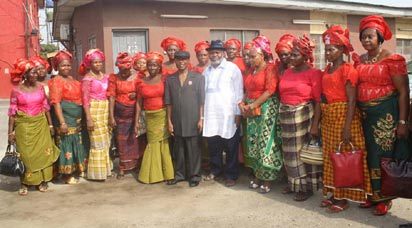
There are around 2.6 million Anaang. They speak Anaang, a Cross River language of the Atlantic-Congo family, and practice Christianity and Paganism.
The Edo number 5 million people and, outside Nigeria, mainly live in Austria, Belgium, France, Germany, Ghana, Italy, Kenya, the Netherlands, Qatar, Senegal, Spain, Turkey, and United Arab Emirates. They speak Edo, an Edoid language of the Atlantic-Congo family, and are predominantly Christian.
There are around 725,600 Efik in Cameroon, Nigeria, and the United States. They speak Efik, a Cross River language, and practice Christianity and their own religion.
The Esan number around 1.5 million people. They speak Esan, an Edoid language, and are mainly Christian.
There are more than 10 million Ibibio in Cameroon, Equatorial Guinea, Ghana, Nigeria, and Trinidad and Tobago. They speak Ibibio, a Cross River language, and practice Christianity.
The Igbo number around 50 million people and mainly live in Australia, Cameroon, Canada, Equatorial Guinea, the Gambia, Ghana, Nigeria, Trinidad and Tobago, the United Kingdom, and the United States. They speak Igbo, an Igboid language of the Atlantic-Congo family, and are Christian but also retain their traditional beliefs.
There are 18 million Ijaw. They speak Ijaw languages, which belong to the Ijoid family, and practice Christianity and traditional African religion.
The Isoko number more than 1 million people and speak Isoko, an Edoid language. They are Christian and practice traditional African religion.
There are around 2.7 million Itsekiri, who speak Itsekiri, a Yoruboid language of the Atlantic-Congo family. They practice Christianity and traditional African religion.
The Obolo, also known as Andoni, speak Obolo, a Cross River language.
There are around 850,000 Ogoni. They speak Ogoni languages, which belong to the Cross River branch, and have their traditional beliefs but also practice Christianity.
The Örö number 1.4 million people and live in Cameroon, the Democratic Republic of the Congo, and Nigeria. They speak Oro, a Cross River language, and practice Christianity and their traditional religion.
There are around 5 million Urhobo. They speak Urhobo, an Edoid language, and practice Christianity and Igbe religion.
The Yoruba number 38 million people and live in Australia, Benin, Burkina Faso, Canada, Côte d’Ivoire, Equatorial Guinea, the Gambia, Ghana, Greece, Ireland, Italy, Liberia, Niger, Nigeria, Sierra Leone, Togo, the United Kingdom, and the United States. They speak Yoruba, a Yoruboid language, and practice Christianity, Islam, and Yoruba religion.
Vocabulary
The vocabulary list is in Igbo (I) and Yoruba (Y), as they are the major native languages of the region.
agha (I) - ogun (Y) - war
Ásụ̀sụ́ Ìgbò (I) - Igbo language
Èdè Yorùbá (Y) - Yoruba language
mkpebi onwe onye (I) - ipinnu ara ẹni (Y) - self-determination
Ṇ́dị́ Ìgbò (I) - Igbo people
nnroonwe (I) - ominira (Y) - independence
Ọ̀hàńjíkọ̀ Ọ̀hànézè Naìjíríyà (I) - Orílẹ̀-èdè Olómìniira Àpapọ̀ Nàìjíríà (Y) - Federal Republic of Nigeria
Ọmọ Káàárọ̀-oòjíire (Y) - Yoruba people
Omu Aro (I) - Aro Confederacy
Ọ̀ràézè Ǹrì (I) - Kingdom of Nri
29 notes
·
View notes
Text




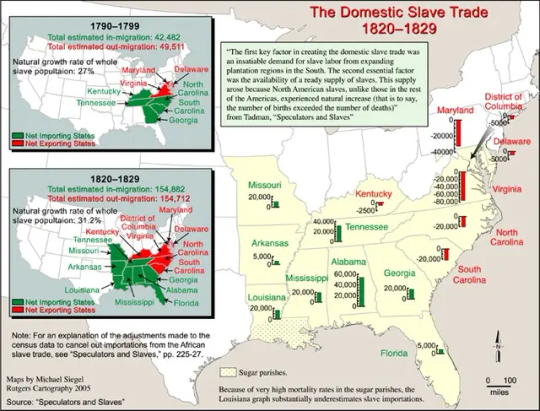
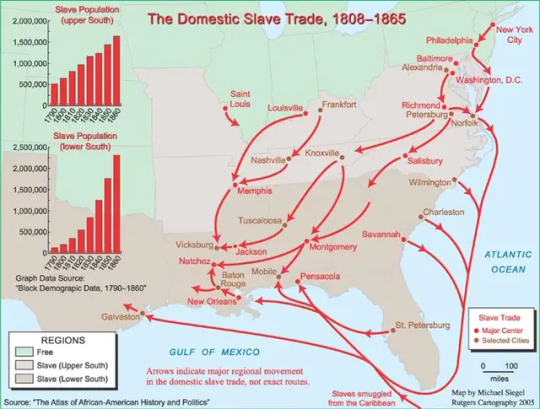

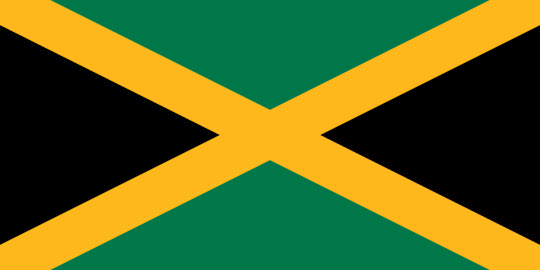
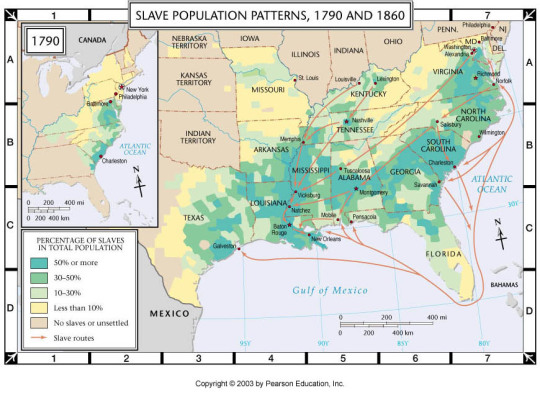


The Igbo in the Atlantic slave trade
Bussa, Barbadian slave revolt leader of Igbo descent
Edward Blyden, Americo-Liberian educator, writer and politician of Igbo descent
Paul Robeson, American actor and writer whose father was of Igbo descent
Aimé Césaire, Martiniquais poet and politician who claimed Igbo descent) argues that many of the slaves taken from the Bight of Biafra across the Middle Passage would have been Igbo. These slaves were usually sold to Europeans by the Aro Confederacy, who kidnapped or bought slaves from Igbo villages in the hinterland. Igbo slaves may have not been victims of slave-raiding wars or expeditions but perhaps debtors or Igbo people who committed within their communities alleged crimes. With the goal for freedom, enslaved Igbo people were known to European planters as being rebellious and having a high rate of suicide to escape slavery. There is evidence that traders sought Igbo women. Igbo women were paired with Coromantee (Akan) men to subdue the men because of the belief that the women were bound to their first-born sons’ birthplace.
It is alleged that European slave traders were fairly well informed about various African ethnicities, leading to slavers targeting certain ethnic groups which plantation owners preferred. Particular desired ethnic groups consequently became fairly concentrated in certain parts of the Americas. The Igbo were dispersed to colonies such as Jamaica, Cuba, Saint-Domingue, Barbados, Colonial America, Belize and Trinidad and Tobago, among others.
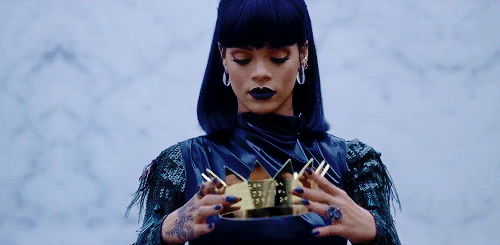
Rihanna is also Igbo
Colonial Nigeria
The establishment of British colonial rule in present-day Nigeria and increased encounters between the Igbo and other ethnicities near the Niger River led to a deepening sense of a distinct Igbo ethnic identity. The Igbo proved decisive and enthusiastic in their embrace of Christianity and Western-style education. Because of the incompatibility of the Igbo decentralized style of government and the centralized system including the appointment of warrant chiefs required for British system of indirect rule, the period colonial rule was marked with numerous conflicts and tension. During the colonial era, the diversity within each of Nigeria's major ethnic groups slowly decreased, and distinctions between the Igbo and other large ethnic groups, such as the Hausa and the Yoruba, became sharper.
The establishment of British colonial rule transformed Igbo society, as portrayed in Chinua Achebe's novel Things Fall Apart. Colonial rule brought about changes in culture, such as the introduction of warrant chiefs as Eze (indigenous rulers) where there were no such monarchies. Christian missionaries introduced aspects of European ideology into Igbo society and culture, sometimes shunning parts of the culture. The rumours that the Igbo women were being assessed for taxation sparked off the 1929 Igbo Women's War in Aba (also known as the 1929 Aba Riots), a massive revolt of women never encountered before in Igbo history.
Aspects of Igbo culture such as construction of houses, education and religion changed following colonialism. The tradition of building houses out of mud walls and thatched roofs ended as the people shifted to materials such as concrete blocks for houses and metal roofs. Roads for vehicles were built. Buildings such as hospitals and schools were erected in many parts of Igboland. Along with these changes, electricity and running water were installed in the early 20th century. With electricity, new technology such as radios and televisions were adopted, and have become commonplace in most Igbo households.
A series of black and white, silent films about the Igbo people made by George Basden in the 1920s and 1930s are held in the British Empire and Commonwealth Collection at Bristol Archives

#african#afrakan#kemetic dreams#africans#brownskin#brown skin#afrakans#african culture#afrakan spirituality#igbo#nigerian#british empire#jamaica#jamaican#barbados#igbo culture#igbo history#rihanna
25 notes
·
View notes
Text
The main difference with the Bamana and the Aro Confederacy was that the Bamana fell to a foe within West Africa:
Where the Bamana Empire differed was that it fell not to European enemies but to the Sokoto Caliphate in the Fulani Jihads. Otherwise, as an interior state heavily benefiting from the slave trade, its history has much in common with the Aro Confederacy. The motivations of the Fulbe Empire were not denunciations of slavery or the trade, which Islam has no more moral issue with than Christianity really does bereft of the enlightenment. It was viewing the Bamana as competition and that the Bamana were not capable of resisting a Jihad backed by firearms.
0 notes
Text
nigeria giant of Africa
Nigeria is often referred to as the “Giant of Africa”, and with good reason. With a population of about 200 million it is the seventh most populous country in the world. It also has the third largest youth population. These young people are doing it all from starting tech businesses, to making music, to writing books. Of course you know that Africa is not a country, but how much do you know about each of the countries that make up the continent? Nigeria Giant of Africa; is a great place to start with.
Now, if you watch the video above, you won’t need to read the details in the rest of this article. The video also features the Afro-House fusion dance record “Ijo (Dance)” by Wyll Diamond.
Nigeria: Basic Facts
Official name: Federal Republic of Nigeria
Other names: Giant of Africa
Capital: Abuja
Independence date: October 1, 1960
Official languages: Nigerian English
Currency: Naira (₦) (NGN)
Former colonizer:Great Britain
Country population: 201 million (2019 estimate)
Current leadership: President Muhammadu Buhari assumed office May 29, 2015
Major ethnic groups: Hausa, Igbo and Yoruba
Major religions followed: Christianity and Islam
Major cities:
Lagos
Kano
Ibadan
Benin City
Port Harcourt
A Brief History
Colonization dates:
August 1861 – Britain annexed Lagos as a Crown Colony with the Lagos Treaty of Cession
January 1, 1901 – Nigeria became a British protectorate, and part of the British Empire
International Organization Memberships:
African Union (founding member)
United Nations
Commonwealth of Nations
OPEC
Tourism
Nigeria: Giant of Africa is a giant in terms of its rainforests and savannah stretches that it features across its terrain.Where the rest of the world is battling to conserve their natural reserve amidst the pollution and exploitation, Nigeria is still giving its best efforts and the results are not disappointing.It is the 6th out of seventeen most biodiverse regions of the world. These forests are home to a diversified flora and fauna. It ranks as the 10th most diversified flora rich region of the world. Apart from this the country ranks third in the richest marine biodiversity genre.
This country is also a hub of ethnicity. It houses some of the oldest and most ethnic tribal and cultural groups of the world. These groups are known for their nature friendly practices and minimalism inspired livelihood. Despite living in the wild, they are one of the most resistant to diseases. Many explorers have visited these groups to learn about their rituals and culture that promote a healthy lifestyle.
The ethnic Education
To ensure that the new generation adults do not forget their roots, children are given training on their ethnicity and culture. They are taught how to live in harmony with nature. Though the training might seem to be a bit harsh, the child grows up to be fully independent adult who has the requisite skills to earn his own livelihood. They are trained in skills such as weaving, carpentry and much more. Though employment rate is challenged throughout the globe and Nigeria being no exception to it, yet indigenous people manage to fill their tummies pertaining to the initial training they have received.
Economics:
20th largest economy as of 2015, worth more than $500 billion and $1 trillion in terms of nominal GDP and purchasing power parity
Wars and conflicts
Ekumeku War (1883–1914) was a series of uprisings against the rising power of the Royal Niger Company of the British Empire in Anioma, the Igbo subgroup in present day Delta State. Although the Ekumeku failed in 1914, but the western Anioma treasure their memory as imperishable legacy. Heroes included DunkwuIsus of Onicha-Olona, NwabuzoIyogolo of Ogwashi-Ukwu, AwunoUgbo, Obi of Akumazi, AgbambuOshue of Igbuzo, Idabor of Issele-Ukwu, OcheiAghaeze of Onicha-Olona, Abuzu of Idumuje-Unor, IdegwuOtokpoike of Ubulu-Ukwu are still remembered in Anioma land. The Ekumeku War is one of the most vigorous campaign of opposition to the British empire and inspired later rebellions such as the Mau Mau of Kenya.
The Anglo–Aro War (1901–1902) was a conflict between the Aro Confederacy in present-day Eastern Nigeria, and the British Empire. Some of the Aro leaders, like OkoroToti, were arrested, tried by tribunals, and hanged. The Aro Confederacy was destroyed and EzeKanuOkoro (king of Arochukwu), went into hiding but was later arrested.
Aba Women’s Riots of November 1929 – Igbo women protested and accused Warrant Chiefs of restricting the role of women in the government.
Civil war (1967–1970) – “The disequilibrium and perceived corruption of the electoral and political process led, in 1966, to back-to-back military coups. In May 1967, the Southern Region declared independence as a state called the Republic of Biafra, under the leadership of Lt. Colonel EmekaOjukwu.[64] The Nigerian Civil War began as the official Nigerian government side attacked Biafra on 6 July 1967 at Garkem. The 30-month war, with a long siege of Biafra and its isolation from trade and supplies, ended in January 1970.[65] Estimates of the number of dead in the former Eastern Region are between 1 and 3 million people, from warfare, disease, and starvation, during the 30-month civil war.”
Some Trivia
Most populous country in Africa (as of 2019)
Seventh most populous country in the world (as of 2019)
Third-largest youth population in the world, after India and China, with more than 90 million of its population under age 18
Over 250 ethnic groups
Nigeria is the 12th largest producer of petroleum in the world and the 8th largest exporter, and has the 10th largest proven reserves. (The country joined OPEC in 1971.) Petroleum plays a large role in the Nigerian economy, accounting for 40% of GDP and 80% of Government earnings.
Prebendalism refers to political systems where elected officials and government workers feel they have a right to a share of government revenues, and use them to benefit their supporters, co-religionists and members of their ethnic group.
6 notes
·
View notes
Photo
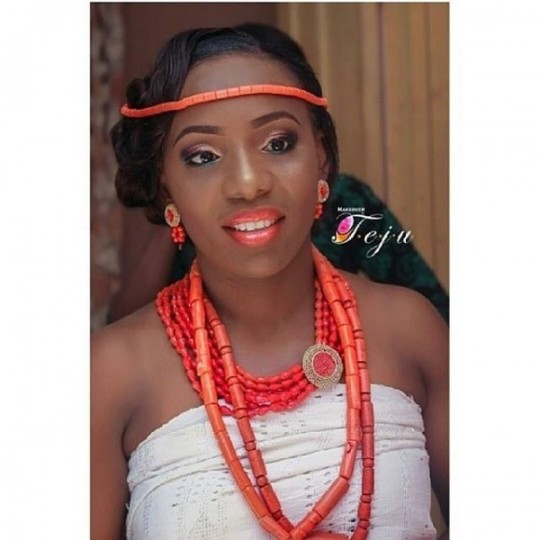

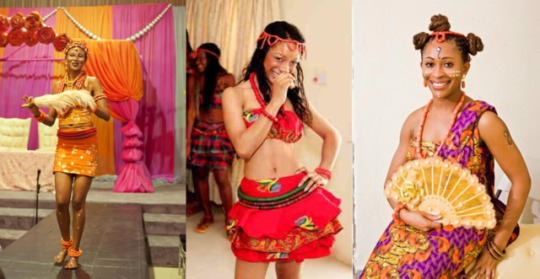


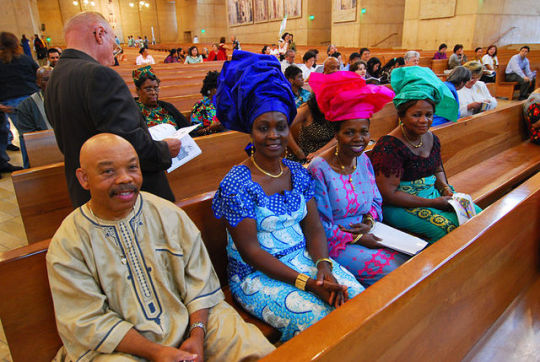

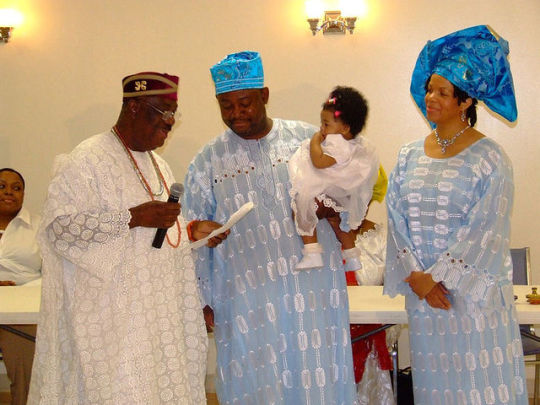
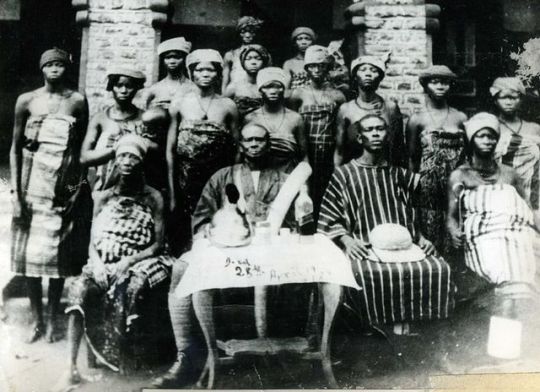

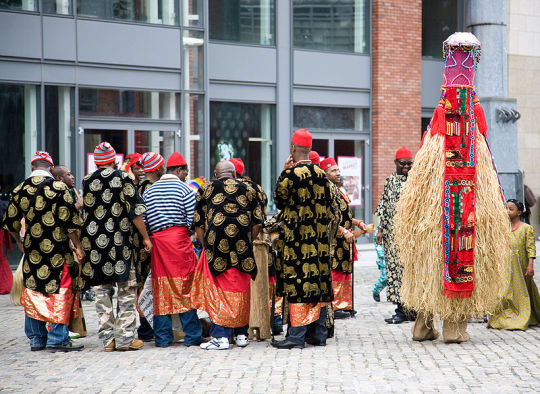
The Igbo people (English: /ˈiːboʊ/; also Ibo, formerly also Iboe, Ebo, Eboe, Eboans, Heebo; natively Ṇ́dị́ Ìgbò [ìɡ͡bò] ) are an ethnic group native to the present-day south-central and southeastern Nigeria. Geographically, the Igbo homeland is divided into two unequal sections by the Niger River – an eastern (which is the larger of the two) and a western section. The Igbo people are one of the largest ethnic groups in Africa.
Before British colonial rule in the 20th century, the Igbo were a politically fragmented group, with a number of centralized chiefdoms such as Nri, Arochukwu, Agbor and Onitsha. Frederick Lugard introduced the Eze system of "Warrant Chiefs". Unaffected by the Fulani War and the resulting spread of Islam in Nigeria in the 19th century, they became overwhelmingly Christian under colonization. In the wake of decolonisation, the Igbo developed a strong sense of ethnic identity. During the Nigerian Civil War of 1967–1970 the Igbo territories seceded as the short-lived Republic of Biafra. MASSOB, a sectarian organization formed in 1999, continues a non-violent struggle for an independent Igbo state.
Small ethnic Igbo populations are found in Cameroon and Equatorial Guinea, as well as outside Africa. Chambers (2002) argued that many of the slaves taken from the Bight of Biafra across the Middle Passage would have been Igbo. These slaves were usually sold to Europeans by the Aro Confederacy, who kidnapped or bought slaves from Igbo villages in the hinterland. Igbo slaves may have not been victims of slave-raiding wars or expeditions, but perhaps debtors or Igbos who committed within their communities alleged crimes. The Igbo were dispersed to colonies such as Jamaica, Cuba, Saint-Domingue, Barbados, the future United States, Belize and Trinidad and Tobago, among others. Elements of Igbo culture can still be found in these places.
1. Igbo Nigerian wedding
2. Igbo man with facial scarifications, called ichi. Photo by by Northcote Thomas, late 19th-early 20th century
3. Igbo brides (click to enlarge)
4. Igbo woman from Awka, Nigeria ca. 1935
5. Three Igbo women, early 20th century
6. Igbo Roman Catholics in the Cathedral of Our Lady of the Angels, Los Angeles, California
7. A modern Igbo wedding, Nnewi, Nigeria
10. An Igbo woman wearing brass anklets called ogba. These are fashion, not punishment.
11. Igbo people celebrating the New Yam festival in Dublin, Ireland
#fashion#igbo#nigeria#nigerian fashion#africa#african fashion#jewelry#subsaharan africa#subsaharan african fashion#headdress#i mean#you could argue the anklets are BOTH fashion AND punishment#that's how i feel about high-heeled shoes
218 notes
·
View notes
Text
With all disrespect I can say that everyone in the twilight fandom and I can write Smeyers characters better than her. Also while we’re here we won’t have:
Resume
Jasper’s confederacy (sorry but no. I can’t get behind that. Yeah it’s the past but...)
Bree dying
Laurent’s manipulative ass (poor Irina)
Leah being bitter
Charlie’s reaction to Jacob forcefully kissing Bella/him not threatening Edward when he returns
The wives of Aro and Caius being locked up
Imprinting (like really? On children? Also the way it’s forced on everyone involved. Edit: if it does happen I at least want both parties to consent to it and to be of legal age. Pedophelia isn’t romantic)
Edward’s stalker behavior
Blood singers (sorry but that’s not how actual mates work)
Eclipse/ Breaking Dawn Jacob
Leah, Seth, Sam and Emily all being related. Someone posted a pic of who was related to who and it’s horrifying
Bella being thought of as emotionless when she does show empathy, irritation, stubbornness, etc. (someone mentioned it. I don’t know who)
Smeyers ideal prospective on femininity (someone mentioned it. I don’t know who)
Please add more
27 notes
·
View notes
Note
wait, what? name the african civilisations?? egypt doesn't count, that's more fertile crescent.
Egypt totally counts but whatever List of African kingdoms Non-exhaustive list of known pre-colonial kingdoms and empires with their capital cities on the African continent.North Africa Egyptian Empire (3150–30 BCE)Kingdom of Kerma (2500-1500 BCE)Kingdom of Kush (1070 BCE – 350 CE)Carthaginian Empire (650-146 BCE)Kingdom of Blemmyes (600 BCE-3rd c. CE)Garamantes (500 BCE-700 CE)Ptolemaic Kingdom (306-30 BCE)Kingdom of Mauretania (285 BCE-431 CE and again (533–698 CE)Kingdom of Numidia (202-46 BCE)Kingdom of Makuria (340-1317 CE)Kingdom of Nobatia(350-650 CE)Kingdom of the Vandals and Alans (435 – 534 CE)Post Classical Kingdom of Alodia (7th c.-1504 CE)Kingdom of Nekor (710–1019 CE)Barghawata Confederacy (744–1058 CE)Emirate of Sijilmassa (758–1055 CE)Rustamid imamate (Tahert area, 767–909 CE)Idrisid dynasty (Morocco, 789 - 974 CE)Fatimid Caliphate (910 - 1171)Hammadid dynasty (Western Ifriqiya, 1014–1152 CE)Zirid dynasty (Ifriqiya, 1048–1148 CE)Almoravid dynasty (Morocco, 1040–1147 CE)Khurasanid dynasty (1059–1128 & 1148–1158 CE)Almohad dynasty (Morocco, 1121–1269 CE)Ayyubid dynasty (Egypt, 1171–1254 CE)Hafsid dynasty (Ifriqiya, 1229–1574 CE)Kingdom of Tlemcen (Oranie, 1235–1556 CE)Marinid dynasty (Morocco, 1248–1465 CE)Mamluk Sultanate (Egypt, 1250–1517 CE)Wattasid dynasty (Morocco, 1420–1554 CE)ModernSultanate of Sennar (1504–1821 CE)Saadi principality of Sus and Tagmadert (1509–1554 CE)Saadi dynasty (Morocco, 1554–1659 CE)Naqsid principality of Tetouan (1597–1673 CE)Sultanate of Darfur (1603–1874 & 1898–1916 CE)Republic of Bou Regreg (1627–1668 CE)Alaouite dynasty (Morocco, 1666 - current CE)Muhammad Ali dynasty (Egypt, 1914–1951 CE)Senussi dynasty (Libya, 1951–1969 CE)East Africa Kingdom of Punt - (2400-1069 BCE)Kingdom of Dʿmt (c. 980-400 BCE)Aksumite Empire (50–937 CE)Post Classical Kingdom of Bazin (9th century CE)Kingdom of Belgin (9th century CE)Kingdom of Jarin (9th century CE)Kingdom of Qita'a (9th century CE)Kingdom of Nagash (9th century CE)Kingdom of Tankish (9th century CE)Sultanate of Mogadishu (10th century–16th century CE)Kilwa Sultanate (960-1513 CE)Kingdom of Medri Bahri (1137-1890 CE)Ethiopian Empire (1137–1974 CE)Zagwe dynasty (1137–1270 CE)Solomonic dynasty (1270–1974 CE)Sultanate of Ifat (1285–1415 CE)Warsangali Sultanate (1298–1886 CE)Kingdom of Buganda (1300–present CE)kingdom of Burundi (1500-1966 CE)kingdom of Rwanda (1300-1959 CE)Ajuran Sultanate (14th century–17th century CE)Adal Sultanate (1415–1555 CE)Modern Sennar Sultanate (1502–1821 CE)Empire of Kitara [1]Sultanate of the Geledi (late 17th century–late 19th century CE)Sultanate of Aussa (fl. 1734–present CE)Majeerteen Sultanate (mid-18th century–early 20th century CE)Kingdom of Gomma (early 19th century–1886 CE)Kingdom of Jimma (1830–1932 CE)Kingdom of Gumma (1840–1902 CE)Sultanate of Hobyo (1880s–1920s CE)Dervish State (1896–1920 CE)West AfricaAncient Dhar Tichitt Civilization (1600-300 BCE)Nok Civilization (1000 BCE-300 CE)Djenné-Djenno Civilization (250 BCE-900 CE)Bura Civilization (300-1300 CE)Post Classical EditGhana Empire (700-1240 CE)Kingdom of Nri (948–1911 CE)Bonoman (11th–19th century CE)Mossi Kingdoms (11th century–1896 CE)Takrur (11th - 13th century)Benin Empire (1180-1897 CE)Mali Empire (1235-1600 CE)Jolof Empire (1350-1549 CE)Wolof Empire (1350–1889 CE)Bornu Empire (1380-1893 CE)Oyo Empire (1400–1895 CE)Kingdom of Dagbon (1409- Ce?)Kingdom of Sine (14th-19th century CE)Songhai Empire (1464-1591 CE)Shilluk Kingdom (1490–1865 CE)Empire of Great Fulo (1490-1776 CE)Kingdom of Saloum (1494-1969 CE)ModernMamprussi (16th century CE - ?)Kaabu Empire (1537-1867 CE)Kingdom of Cayor (1549-1879 CE)Kingdom of Baol (1555-1874 CE)Kingdom of Dahomey (1600–1900 CE)Aro Confederacy (1690-1902 CE)Asante Union (1701–1894 CE)Kong Empire (1710–1894 CE)Bamana Empire (1712-1861 CE)Sokoto Caliphate (1804-1904 CE)Wassoulou Empire (1878-1898 CE)Central Africa Ancient Sao Civilisation (6th century BCE-16th century CE)Post ClassicalKanem–Bornu Empire (9th century-1900 CE)Kingdom of Kongo (1400–1888 CE)ModernSultanate of Bagirmi (1522-1897 CE)Luba Empire (1585–1885 CE)Kingdom of Ndongo (16th century-? CE)Kingdom of Matamba (1631-1744 CE)Wadai Empire (1635-1912 CE)Lunda Empire (1660–1887 CE)Kingdom of Lunda (1665-1887 CE)Kuba Kingdom (1600–present CE)Southern Africa Post ClassicalKingdom of Mapungubwe (9th century–14th century CE)Kingdom of Zimbabwe (1220–1450 CE)Kingdom of Mutapa (1430-1760 CE)Kingdom of Butua (1450-1683 CE)Torwa dynasty (1450-1683 CE)Modern Rozwi Empire (1660-1866 CE)Ndwandwe Kingdom (1780-1819 CE)Zulu Kingdom (1816–1897 CE)Merina Kingdom (18th century- 1896 CE)Mthethwa Paramountcy (18th Century - 1820 CE)
23 notes
·
View notes
Text
PDF Version: IGBO KINGDOMS.pdf
Igbo Kingdoms: The Aro Confederacy and Kingdom of Nri PDF Version: IGBO KINGDOMS.pdf
0 notes